THINK public SPACE | competition
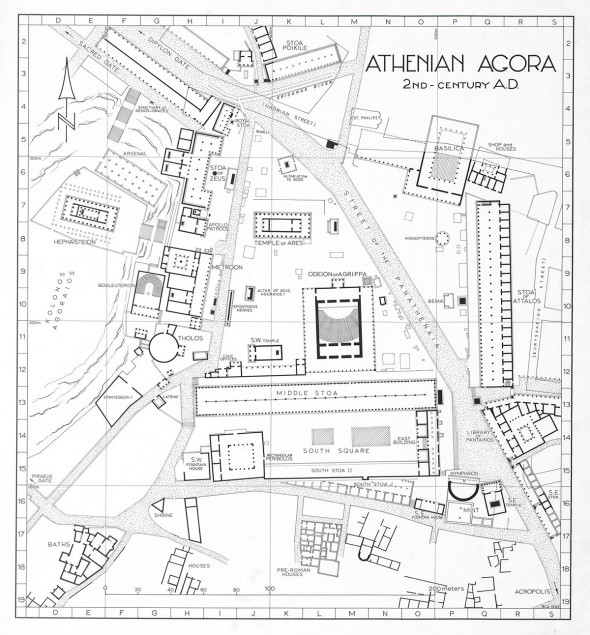 *Athenian Agora, 2nd century AD
*Athenian Agora, 2nd century AD
Intro
An International, Public, Anonymous, Single Stage, Conceptual Architectural – Urbanistic Design Competition
The Think Space Programme in 2015 is returning in form of a Special Edition under the topic THINK public SPACE. The focus of this Special Edition will be directed on urban public space in the European context. On this occasion Think Space is teaming up with an ambitious and comprehensive project of revitalization of public spaces in the City of Zagreb Zagreb for Me which is being executed by the Zagreb Society of Architects in cooperation with the Faculty of Architecture of the University of Zagreb.
Zagreb for Me project is seeking to enhance the quality of public spaces in the city of Zagreb through 17 architectural and urbanistic interventions including the public, professionals and municipality raising thereby consciousness and importance of the subject of public space through the project Zagreb for Me. Within the mentioned project, the Think Space Competition will strive to seek out solutions for public spaces on conceptual and theoretical levels exploring the possibilities and questioning the character of public space in present-day social, geo-political and economical context.
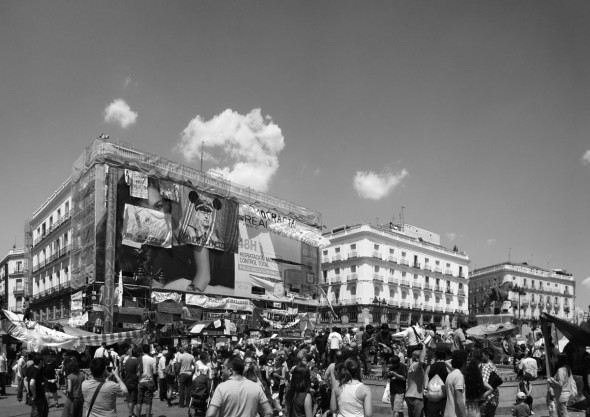 *Puerta de sol, Madrid, May 2011, photographer Damir Sekulic
*Puerta de sol, Madrid, May 2011, photographer Damir Sekulic
Competition brief
Cities around Europe are grounds of ever intensifying conflict between two paradigms. On the one hand side we are witnesses of urban development as an infrastructure of global capital, and on the other hand side the traditional idea of maintaining the concept of a city as a political place in which sovereignty thrives on public squares. While the first paradigm sees the private interests necessarily transform into public ones, the other looks upon public sphere as the last defensive line against gentrification. Architecture, in this case acts as a discipline providing the spatial and physical framework for this conflict of interests in public space.
The recent financial crisis completely changed the flows of these two paradigms. Accumulation of market values through real-estate and territorial resources experienced an economical collapse, while on the other side this economical breakdown resulted in questioning the legitimacy of the political system that produced it. In times of insecurity the lost public sphere has again taken over the city squares in order to return the struggling economy back to the sphere of the political decision making, as demonstrated with the Occupy movement to the recent successes of the Greek Syriza party and the Podemos movement in Spain.
The breakdown of economical and political paradigms in public space unveils again its dual role which can be decisive in this turbulent period of the European continent. Public space emerged as an amalgam in which private interests have been exercised (market place, trading etc), but also as a place of recognizing and acknowledging of common interests as well as a place of representation of public institutions (political, religious, social).
So the public space incorporates a little bit of, both the private (houshold – oikos), and the public (polis). In other words the public sphere is a universal field in which the individual invests his or her interest and in which he or she is found dislocated from the everyday role, or as Slavoj Žižek puts it: „This universality-for-itself is not simply external (or above) the particular context: it is inscribed into it, it perturbs and affects it from within, so that the identity of the particular is split into its particular and its universal aspect. “
What we are witnessing nowadays across Europe is the powerlessness of the economical logics and the accompanying social reproduction, as well as that of the politics, to mark this split within the individual which thereby destabilizes the fundamental trust in institutions which enable the individual to become a part of the common society. Although the universality, and so the public sphere as well, is merely a form without a real content, an emptiness in which every individual inscribes the consequences of the division into particular and universal identity, a fact remains that the form in itself is effective, it leaves traces in the existence and perception of the individual, directs its decisions, dreams, imaginations and his ultimate actions in space. In today’s context it serves to suppress the economical differences becoming more evident, as well as the re-politicization of public space. But how long will this be possible?
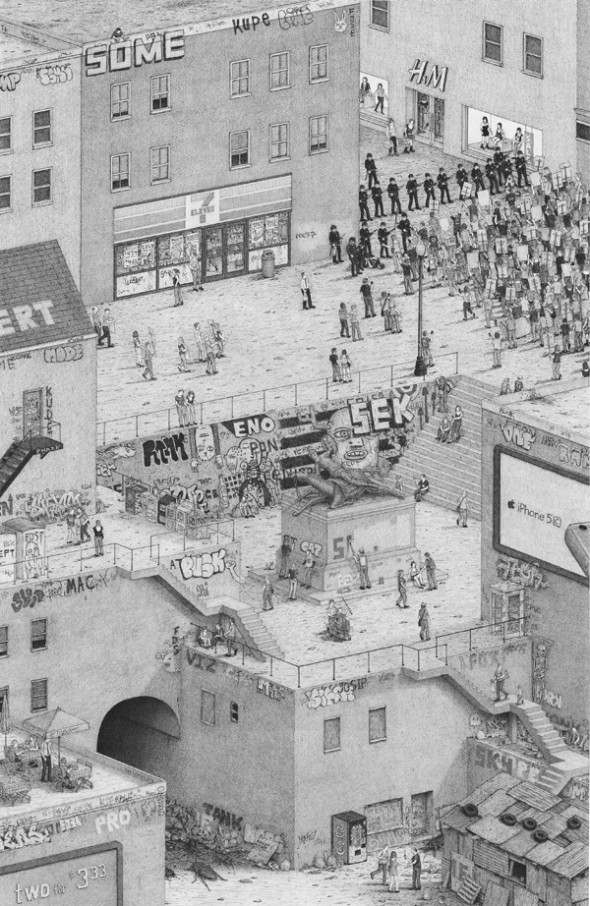 *courtesy of Ben Tolman, author
*courtesy of Ben Tolman, author
Task
As the public space of a city is a key place of conflict of economical and political paradigms of the society the task is to respond to the question of architecture’s ability (as a specific discipline) to intervene in this process. What is actually the support and function of architecture in times of growing economical and political instability and its repercussions on public space? Is architecture forced to rely on its own knowledge, its own form in these times, or, and how to include other disciplines in co-creating the public sphere? Or is this a hidden opportunity to liberate architecture of superfluous narratives? In the end, to what extent can architectural form play the role of the universal form, a place in which conditions for creating an Event are formed, in which interests and conflicts are mitigated and which constitutes a public sphere and a physical space for all users? Scenarios are to be created of human interaction and their manifestations in public space of a city within the European context.
In accordance with the premises of the Programme founded in 2010 by the Zagreb Society of Architects, progressive thinking about space and architecture is expected of the Competitors conducted through spatial-social experiments, which might be used as a bases for future research, studies, projects and realizations erasing the limits between architecture and associated disciplines.
The wanted scenarios have to answer the above stated questions, offering solutions on scale of small to medium interventions in real or imagined urban locations. Abstracting local problems to the level of a European or universal discourse is encouraged within the Competition, enabling specific sites within the city to equally communicate and to act independently of a centre and/or periphery. By creating a network of activities in a public space of a city for the benefit of all users, the aim is to anticipate and contribute to creating added values of public space. The competitors should take into account the possible realization of the project within the cityscape as well as its applicability in different contexts without a loss off the basic concept of the work.
Deadlines and competition fees
April 27th 2015 – Competition start
May 20th 2015 – Questions deadline
June 30th 2015 until 12.00 hours, noon CET – Submission deadline
July 15th 2015 – Winners announced
Participation is free of charge.
All the info in the Think Space web site.
Related Posts
Questo sito usa Akismet per ridurre lo spam. Scopri come i tuoi dati vengono elaborati.

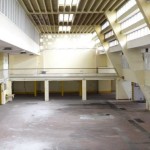
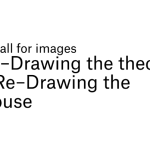
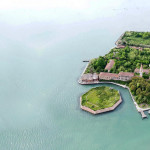
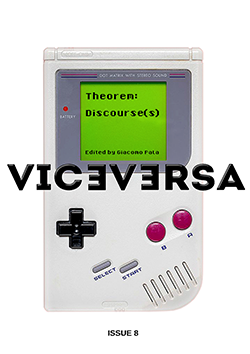


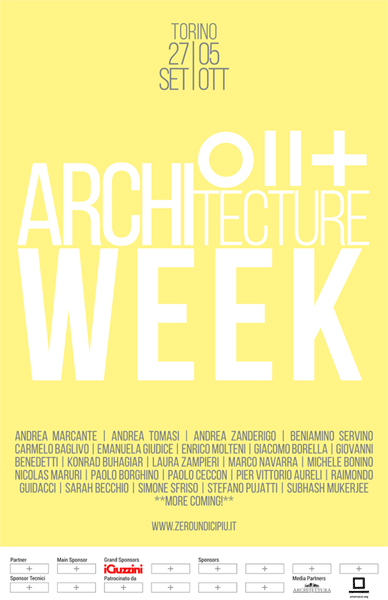
Lascia un commento